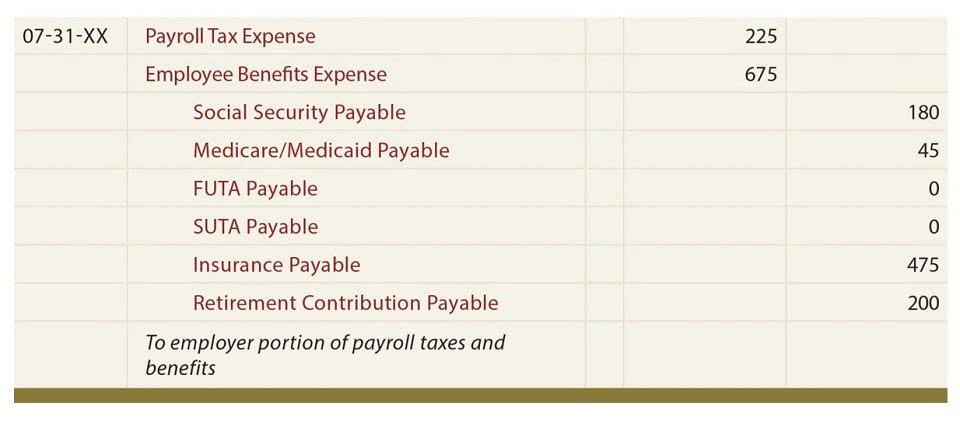Business Documents: What to Keep, Store, and Secure

Your Bench bookkeeping team automates your financial admin, connecting bank accounts, credit cards, and payment processors to import how to keep records for small business information into our platform. Your team also answers questions and completes your tax prep ahead of filing. We can even handle your tax filing and provide unlimited, on-demand consultations with a tax professional.

Method 6 – Create Cost of Sales and Expense Sheets

Burden of proof is a legal term that refers to the duty placed on one side or the other in a legal dispute to prove or disprove a disputed fact. In tax law, the burden of proof usually is on the taxpayer to prove the accuracy of the taxpayer’s tax return. The IRS has the burden of proof when it seeks to impose penalties or charge the taxpayer with a criminal instead of civil violation. You may be able use the Document Upload Tool to respond digitally to eligible IRS notices and letters by securely uploading required documents online through IRS.gov. Go to IRS.gov/Account to securely access information about your federal tax account. If you are a sole proprietor, a partnership, or an S corporation, you can view your tax information on record with the IRS and do more with a business tax account.
- This formula will automatically assign the account type when you select a Category from the drop-down list.
- If you use the FreeAgent mobile app, you can snap expense receipts while you’re on the go and upload them straight to your account from your phone.
- You should keep your filed tax records from previous years in addition to business expenses and documents relevant to your future tax prep.
- Review all guidelines carefully and come up with a plan that’s easy to implement and stick with.
- Poor record-keeping can significantly affect a business’s financial stability, legal compliance, and overall operations.
Essentials of Small Business Recordkeeping
Record keeping is one of the most essential and important responsibilities as a small business owner. An efficient record-keeping system might actually be responsible for your business’ success. Also, make sure to utilize our numerous blogs that cover everything from tax considerations to how to set up accounting books for small business. Limited companies must keep records for at least six years from the end of the last company accounting year they relate to.

Individual Tax Forms
Effective document management serves as the backbone of your business operations. The responsibility to validate information on tax returns is known as https://dqoi.ufc.br/pt/accounting-cycle-simplified-a-step-by-step-guide/ the burden of proof. Small business owners must be able to prove expenses to deduct them.
Your ship (the sales process) is — unfortunately — going to be built imperfectly the first time around, so there are some holes that might pop up during your voyage. This saves the time of cross-referencing sales data and moving it through various programs since it’s all in one spot. Tracking your data in any form is better than not tracking at all. These are vital pieces of information for any team to gather if they want to hone the previously mentioned customer journey into a well-oiled sales machine. Digitizing your information is recommended, especially after the three-year Bookkeeping for Startups mark has passed.
Records Management Tips
- We can even handle your tax filing and provide unlimited, on-demand consultations with a tax professional.
- Make sure to document every cash transaction so that your bookkeeping reflects the actual income of your business.
- In creating a policy of business record retention, consider the laws and government agencies that apply to your business as you develop such policies.
- Discarding records that should be kept poses a wide range of potential tax and legal problems.
- Your home office will qualify as your principal place of business for deducting expenses for its use if you meet the following requirements.
Use Form 11-C, Occupational Tax and Registration Return for Wagering, to register for any wagering activity and to pay the federal occupational tax on wagering. If you are in the business of accepting wagers or conducting a wagering pool or lottery, you may be liable for the federal excise tax on wagering. Use Form 730, Monthly Tax Return for Wagers, to figure the tax on the wagers you receive. There is a federal excise tax on certain trucks, truck tractors, and buses used on public highways. The tax applies to vehicles having a taxable gross weight of 55,000 pounds or more.
- Document everything in a written policy that all team members can reference.
- These are just a few examples of the types of records that small businesses need to keep.
- However, many business owners choose to retain them for up to seven years, especially if they are tied to significant financial transactions or potential insurance or legal claims.
- In our experience, businesses that stay organized with document storage have fewer issues at tax time and are better prepared if they’re ever audited.
You may also be subject to the $50 penalty if you do not provide your TIN to another person when it is required on a return, statement, or other document. The following penalties apply if you are required to file information returns. For more information, see the General Instructions for Certain Information Returns. This section describes the excise taxes you may have to pay and the forms you have to file if you do any of the following. Once you have set up your accounting method, you must generally get IRS approval before you can change to another method.
Choosing the Right Recordkeeping System
- Effective record keeping is vital for the success and sustainability of small businesses.
- The responsibility to validate information on tax returns is known as the burden of proof.
- A corporation generally takes the same deductions as a sole proprietorship to figure its taxable income.
- You will gain insight into your revenue, expenses, and overall financial position.
- Tax time might be the most important time for business recordkeeping, but taxes aren’t the only reason you should be keeping all of those documents.
- Keeping up-to-date records can help ease some of your tax-time stress.
To keep your business on track, aim to check these statements monthly or quarterly and always be prepared for any financial changes ahead. By assigning a specific amount each month for major expenditures, you can prepare for surprises without putting your daily operations on the line. Proactively budgeting with the guidance of an outsourced CFO will keep your business running smoothly and ensure you’re prepared for any financial challenges that may arise. You’ll be hanging onto those records indefinitely, as there is no statute of limitations. We set the time limit for which records must be stored and secured in this stage.

Now with all of that out of the way, let’s talk about how you can use all of this data you’re keeping track of to make more sales. Without reports, all of the sales tracking data will be spread and cluttered in various spots. The more data that has to be manually managed, the less efficient your team becomes. The more time each rep has to spend in Google Sheets, the less time they are making sales calls. I’ve seen plenty of sales teams that end up wasting loads of effort and funds purely due to a lack of financial tracking. For the B2B sales process, your customers’ data should be tracked from doing research and running a discovery call.
